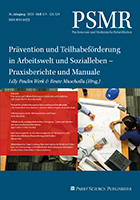Child molesters, rapists, and other sexoffenders are perceived as among the most vile members of our society. It is not surprising, therefore, that the forensic discussion revived an ancient method of turning these condemned men into eunuchs.
"The traditional concept of punishment, which generally consists of deprivation of liberty, has been applied to offenders by sending them to prison. However, this restriction in itself has been considered as an insufficient punishment for some offences, in particular, involving sexcrimes," Dr. Zeynep Burcu Akbaba (University of Leicester/UK) emphasizes (in "Forensische Psychiatrie und Psychotherapie").
"Recent technological developments resulting in hormone suppressors show that since it diminishes the testosterone level, deviant sexual urges can be decreased through the use of anti-androgen hormone treatment which brings a new dimension to incarceration of sex offenders. In this sense, as an alternative to imprisonment, Chemical Castration can be regarded as taking an offender´s sexual liberty temporarily by the use of anti-androgen hormone treatment to control their abnormal urges."
From this point of view, considering Chemical Castration as an equivalent to punishment and alternative punitive sanction to imprisonment, Akbaba induces an intensive discussion. "In claiming an alternative punishment, retributive and utilitarian theories of punishment will also be assessed in the context of the necessary and sufficient conditions for imposing punishment and specific punishments for particular crimes by pointing out the concept, purpose and justification of punishment," the forensic specialist notes in:
Forensische Psychiatrie und Psychotherapie, Supplement, Special Topic "Sexual Offender: Essential Therapy - Coercive Therapy?"























